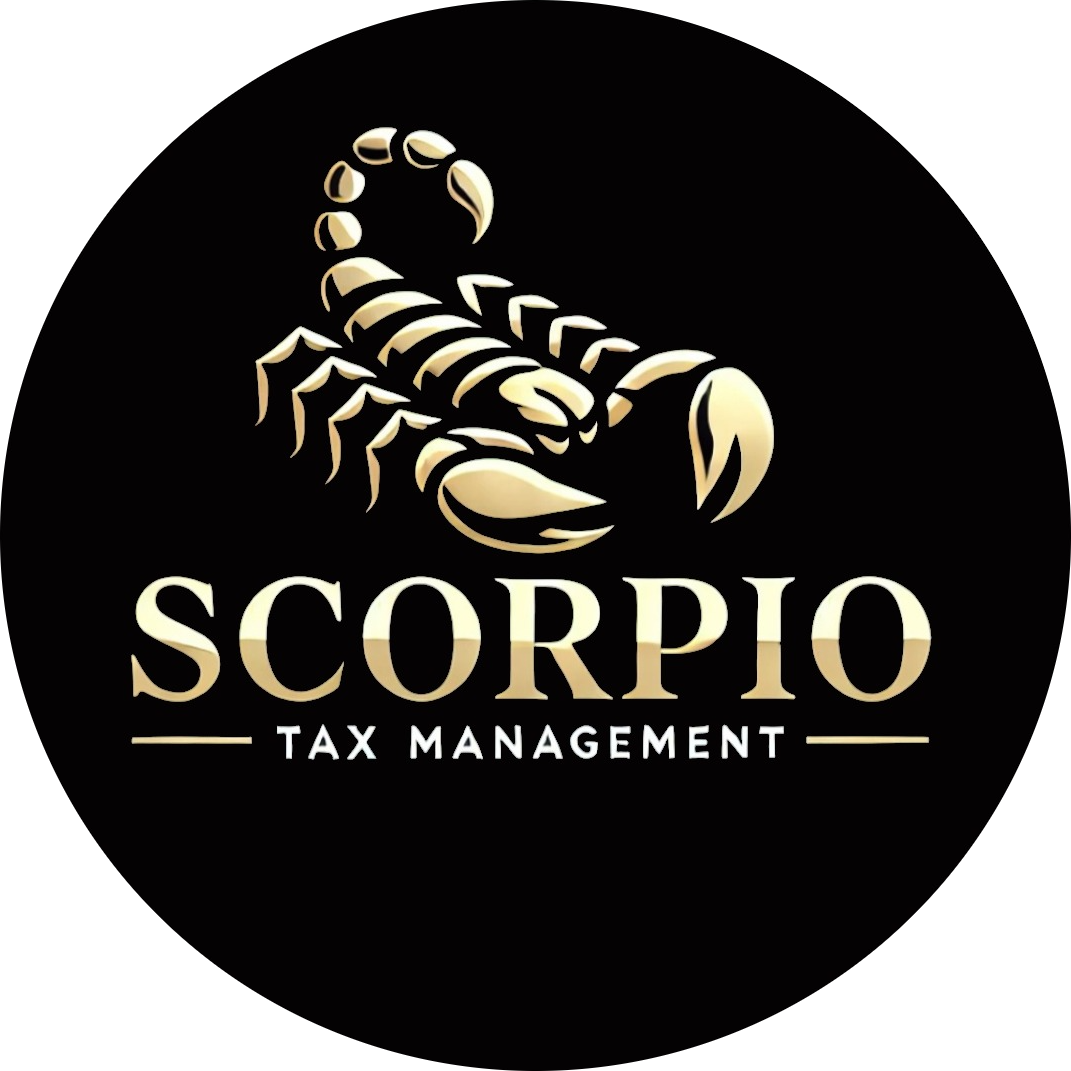Comprehensive Annual Tax Calendar:
Individuals, LLCs, S-Corps, and C-Corporations
Navigating tax deadlines can be overwhelming for individuals and small business owners alike. Missing a filing or payment due date can lead to costly penalties, interest, or IRS scrutiny. To help you stay organized and compliant, we have created this annual tax calendar, designed to be a timeless resource for managing federal tax obligations. Whether you’re an individual taxpayer, a freelancer, or a small business owner (e.g., sole proprietor, LLC, S-Corp, or partnership), this calendar outlines key tax deadlines, estimated payment schedules, and planning tips to keep your taxes on track year-round.
Write to Tax@S-CorpTax.com, or call (858) 779-4125.
Annual Tax Calendar
Key Tax Deadlines and Planning Tips
January
Deadlines for Individuals:
January 15: Fourth-quarter estimated tax payment for the prior tax year (if you’re self-employed, have side income, or don’t have enough tax withheld). Covers income from October 1 to December 31 of the prior year.
January 31: Employers issue Form W-2 (wages) to employees and Form 1099-NEC (nonemployee compensation) to freelancers/contractors for the prior year. Individuals receive these forms to prepare their tax returns.
Deadlines for Small Business Owners:
January 31:
File Form W-2 with the Social Security Administration (SSA) and provide copies to employees.
File Form 1099-NEC with the IRS and provide copies to contractors paid $600 or more in the prior year.
File Form 940 (Federal Unemployment Tax Act, FUTA) for the prior year, reporting unemployment taxes (if not deposited earlier).
File Form 941 (Employer’s Quarterly Federal Tax Return) for the fourth quarter of the prior year (October–December), reporting withheld income taxes and FICA (Social Security/Medicare).
Planning Tips:
Individuals: Gather W-2s, 1099s, and receipts for deductible expenses (e.g., charitable donations, medical costs) to prepare for tax filing. Review your prior year’s return to identify missed deductions.
Small Business Owners: Ensure your payroll system is set up to issue W-2s and 1099s accurately. Reconcile fourth-quarter payroll taxes and confirm FUTA deposits. Schedule a consultation with an Enrolled Agent to review your business tax strategy for the new year.
Both: If you expect a refund, file early to receive it sooner. Consider increasing withholdings or estimated payments if you owed taxes last year.
February
Deadlines:
No major federal tax deadlines for individuals or small businesses, unless you missed January 31 filings (late filings incur penalties).
Planning Tips:
Individuals: Continue organizing tax documents, including mortgage interest (Form 1098), student loan interest, and education expenses (Form 1098-T). Explore tax-advantaged accounts like IRAs for contributions deductible on your upcoming return.
Small Business Owners: Review your accounting records for accuracy before tax season peaks. If you operate an LLC or S-Corp, confirm your books align with Schedule K-1 reporting needs.
Both: Meet with an Enrolled Agent to discuss tax-saving opportunities, such as maximizing deductions or adjusting estimated payments for the current year.
March
Deadlines for Small Business Owners:
March 15:
File Form 1120S (S-Corp income tax return) or Form 1065 (partnership/LLC return) for the prior year, including Schedule K-1s for owners. Request an extension (Form 7004) if needed, but taxes owed are due by this date.
Pay corporate taxes for S-Corps if not filing an extension.
Planning Tips:
Individuals: Finalize your tax preparation to file by April 15. If self-employed, review business expenses (e.g., home office, mileage) to claim on Schedule C.
Small Business Owners: Ensure your accountant has all financial records for S-Corp or LLC filings. If extending your return, estimate taxes owed to avoid underpayment penalties. Review payroll compliance for the first quarter.
Both: Consider contributing to a traditional IRA by the tax filing deadline (typically April 15) to reduce taxable income for the prior year.
April
Deadlines for Individuals:
April 15:
File Form 1040 (individual income tax return) for the prior year or request an extension (Form 4868). Taxes owed are due even if you extend.
First-quarter estimated tax payment for the current year (covers January 1–March 31 income).
Make IRA contributions for the prior tax year (traditional or Roth, subject to income limits).
Deadlines for Small Business Owners:
April 15:
File Form 1040 for sole proprietors (Schedule C) or single-member LLCs, reporting business income. Request an extension if needed, but pay taxes owed.
File Form 941 for the first quarter of the current year (January–March).
Pay first-quarter estimated taxes for self-employed owners or pass-through entities (S-Corps, LLCs).
Planning Tips:
Individuals: File early to avoid last-minute stress. If extending, estimate taxes accurately to avoid penalties. Review eligibility for credits like the Earned Income Tax Credit (EITC) or Child Tax Credit.
Small Business Owners: Reconcile first-quarter payroll and sales tax records. If you extended your S-Corp or LLC return, finalize financials for the September/October deadlines. Assess your business structure (e.g., LLC vs. S-Corp) for tax efficiency.
Both: Work with an Enrolled Agent to identify last-minute deductions or credits. Budget for estimated tax payments to avoid cash flow issues.
May
Deadlines:
No major federal tax deadlines, unless you missed April filings.
Planning Tips:
Individuals: If you received a refund, consider adjusting withholdings to increase take-home pay. If you owed taxes, increase estimated payments or withholdings for the current year.
Small Business Owners: Review second-quarter financials and payroll compliance. If you’re behind on payroll taxes, contact an Enrolled Agent to negotiate with the IRS and avoid penalties.
Both: Mid-year is a great time to assess your tax strategy. Schedule a consultation to explore deductions, retirement contributions, or business expense planning.
June
Deadlines for Individuals:
June 15: Second-quarter estimated tax payment for the current year (covers April 1–May 31 income).
Deadlines for Small Business Owners:
June 15: Second-quarter estimated tax payment for self-employed owners or pass-through entities.
Planning Tips:
Individuals: Review your year-to-date income, especially if you have variable sources (e.g., freelance work). Adjust estimated payments to reflect changes in income or expenses.
Small Business Owners: Evaluate your business’s profitability and cash flow. Consider prepaying deductible expenses (e.g., subscriptions, equipment) to reduce taxable income later in the year.
Both: Explore tax-advantaged accounts like Health Savings Accounts (HSAs) or 529 plans for education savings.
July
Deadlines for Small Business Owners:
July 31: File Form 941 for the second quarter of the current year (April–June).
Planning Tips:
Individuals: If you extended your Form 1040, finalize your tax return for the October deadline. Gather any missing documents or receipts.
Small Business Owners: Reconcile second-quarter payroll taxes and confirm timely deposits. Review your accounting software for accuracy before the third quarter.
Both: Meet with an Enrolled Agent for a mid-year tax review to project your tax liability and identify savings opportunities.
August
Deadlines:
No major federal tax deadlines.
Planning Tips:
Individuals: Assess your withholdings or estimated payments to avoid underpayment penalties. Consider charitable contributions or medical expenses to itemize deductions.
Small Business Owners: Review your business expenses for potential deductions (e.g., marketing, travel). If you’re planning major purchases (e.g., equipment), time them for depreciation benefits.
Both: Start preparing for third-quarter obligations and year-end tax planning.
September
Deadlines for Individuals:
September 15: Third-quarter estimated tax payment for the current year (covers June 1–August 31 income).
Deadlines for Small Business Owners:
September 15:
Third-quarter estimated tax payment for self-employed owners or pass-through entities.
Extended Form 1120S or Form 1065 (S-Corp or LLC/partnership returns) due for the prior year.
Planning Tips:
Individuals: If you’re self-employed, track business expenses diligently to maximize Schedule C deductions. Review retirement contributions to 401(k) or IRA plans.
Small Business Owners: Finalize extended S-Corp or LLC returns to avoid late penalties. Prepare for fourth-quarter payroll and sales tax filings.
Both: Consult an Enrolled Agent to optimize year-end tax strategies, such as bunching deductions or deferring income.
October
Deadlines for Individuals:
October 15: Extended Form 1040 due for the prior year (if you filed Form 4868).
Deadlines for Small Business Owners:
October 15: Extended Form 1040 due for sole proprietors or single-member LLCs.
October 31: File Form 941 for the third quarter of the current year (July–September).
Planning Tips:
Individuals: If you extended your return, ensure all documents are submitted to avoid late penalties. Review your tax liability to plan for the next year.
Small Business Owners: Reconcile third-quarter payroll and confirm timely tax deposits. Begin year-end tax planning, including equipment purchases or bonuses for depreciation deductions.
Both: Meet with an Enrolled Agent to finalize extended returns and project fourth-quarter estimated taxes.
November
Deadlines:
No major federal tax deadlines.
Planning Tips:
Individuals: Make charitable contributions or pay property taxes by December 31 to claim deductions on your upcoming return. Maximize HSA or 401(k) contributions.
Small Business Owners: Review your profit-and-loss statement to estimate year-end taxes. Consider prepaying expenses or deferring income to lower taxable income.
Both: Schedule a year-end tax planning session to identify last-minute savings opportunities.
December
Deadlines:
No major federal tax deadlines until January.
Planning Tips:
Individuals: Finalize deductible expenses (e.g., donations, medical costs) and retirement contributions for the current tax year. Adjust withholdings if you expect a large refund or owe taxes.
Small Business Owners: Issue employee bonuses or purchase equipment by December 31 for depreciation deductions. Reconcile fourth-quarter financials for January filings.
Both: Work with an Enrolled Agent to execute year-end strategies, such as bunching deductions or timing income to stay in a lower tax bracket.
Additional Notes and Considerations
State Tax Deadlines
While this calendar focuses on federal taxes, state tax deadlines vary. For example:
California: Franchise Tax Board filings for LLCs are due April 15, with estimated tax payments aligning with federal dates.
New York: Corporate and personal income tax deadlines often mirror federal dates, but sales tax filings may have different schedules.
Action: Check your state’s revenue department website or consult an Enrolled Agent for state-specific deadlines.
Extensions and Penalties
Extensions: Filing extensions (e.g., Form 4868 for individuals, Form 7004 for businesses) extend the filing deadline but not the payment deadline. Pay estimated taxes owed by the original due date to avoid penalties.
Penalties: Late filing penalties are 5% per month (up to 25%) of unpaid taxes, while late payment penalties are 0.5% per month. Interest accrues on unpaid balances.
Planning for Variable Income
Individuals: If you have side gigs or freelance income, use the IRS’s Tax Withholding Estimator to calculate estimated payments.
Small Business Owners: Monitor cash flow to cover quarterly estimated taxes and payroll obligations. Use accounting software to track income and expenses.
Working with an Enrolled Agent
Our Enrolled Agents can:
Create a personalized tax calendar tailored to your income sources and business structure.
File returns, make payments, and manage extensions on your behalf.
Provide year-round tax planning to minimize liabilities and maximize deductions.
Represent you before the IRS if you face audits or notices.
Why Choose SCORPIO TAX MANAGEMENT for Tax Compliance?
Staying on top of tax deadlines is easier with a trusted partner.
Enrolled Agent Expertise: Our EAs are federally licensed and trained in tax law, ensuring accurate and compliant filings.
Tailored Support: We customize strategies for individuals and small businesses, from sole proprietors to S-Corps.
Proactive Planning: We help you anticipate tax obligations and optimize deductions year-round.
Nationwide Representation: Our EAs serve clients in all 50 states, providing seamless support.
Don’t attempt to handle your tax situation all by yourself… work with professionals!
The trouble and money a good tax strategist can save you often pays off right away.
Scorpio Tax Management can help you. There’s no cost to have a first conversation.
We are Enrolled Agents, licensed directly by the IRS to advise and represent taxpayers.
Scorpio Tax Management can assist High Income Earners and Business Owners in all 50 states
Please write us at Tax@S-CorpTax.com, or call (858) 779-4125. You can also schedule a call in advance HERE.
California
We assist business owners in all the following California cities and their surrounding areas:
San Francisco, including Marin County (Sausalito, Mill Valley, Tiburon), Silicon Valley (Palo Alto, Menlo Park, Mountain View), and the entire East Bay (Oakland, Berkeley, Fremont).
Paso Robles, including Atascadero, San Luis Obispo, Morro Bay, and all other parts of the Central Coast.
Santa Barbara, including Buellton, Santa Ynez, Montecito, Ventura, Oxnard, and Carpinteria.
Los Angeles, including Malibu, Santa Monica, Beverly Hills, Hollywood, South Bay (Manhattan Beach, Redondo Beach), and Pasadena.
Orange County, including Anaheim, Huntington Beach, Newport Beach, Irvine, Laguna Beach, and Costa Mesa.
San Diego, including Del Mar, La Jolla, Rancho Santa Fe, Encinitas, Oceanside, and Carlsbad.
Palm Springs, including Palm Desert, Rancho Mirage, Indio, La Quinta, and all other parts of the Coachella Valley.
Florida
We serve business owners across Florida’s vibrant cities and regions, from bustling urban centers to coastal communities:
Miami, including Miami Beach, Coral Gables, Coconut Grove, Key Biscayne, and the greater Miami-Dade County area.
Fort Lauderdale, including Hollywood, Pompano Beach, Weston, Davie, and all of Broward County.
West Palm Beach, including Boca Raton, Delray Beach, Jupiter, Palm Beach Gardens, and the entire Palm Beach County area.
Tampa, including St. Petersburg, Clearwater, Sarasota, Bradenton, and the broader Tampa Bay region.
Orlando, including Winter Park, Kissimmee, Lake Buena Vista, Celebration, and the greater Central Florida area.
Jacksonville, including St. Augustine, Ponte Vedra Beach, Amelia Island, and all of Duval and St. Johns Counties.
Naples, including Marco Island, Bonita Springs, Estero, and the entire Collier County and Southwest Florida region.
Nevada
Our tax services extend to Nevada’s key business hubs and surrounding communities, supporting entrepreneurs in a tax-friendly state:
Las Vegas, including Henderson, Summerlin, North Las Vegas, Boulder City, and the entire Clark County area.
Reno, including Sparks, Carson City, Truckee, and the broader Washoe County and Northern Nevada region.
Lake Tahoe (Nevada side), including Incline Village, Stateline, Zephyr Cove, and the surrounding South Lake Tahoe area.
Henderson, including Green Valley, Anthem, Seven Hills, and nearby communities in the Las Vegas Valley.
Elko, including Spring Creek, Carlin, and the greater Northeastern Nevada region.
Mesquite, including St. George (nearby Utah border), Bunkerville, and the Virgin Valley area.
Pahrump, including Nye County and surrounding rural communities west of Las Vegas.
Tennessee
We support business owners in Tennessee’s dynamic cities and regions, from music hubs to growing entrepreneurial centers:
Nashville, including Franklin, Brentwood, Hendersonville, Murfreesboro, and the greater Davidson and Williamson County areas.
Memphis, including Germantown, Collierville, Cordova, Bartlett, and the broader Shelby County region.
Knoxville, including Farragut, Maryville, Oak Ridge, Sevierville, and the entire East Tennessee area.
Chattanooga, including Lookout Mountain, Signal Mountain, Hixson, and the surrounding Hamilton County and Southeast Tennessee region.
Clarksville, including Hopkinsville (nearby Kentucky border), Springfield, and the greater Montgomery County area.
Johnson City, including Kingsport, Bristol, Elizabethton, and the Tri-Cities region of Northeast Tennessee.
Gatlinburg, including Pigeon Forge, Sevierville, and the Smoky Mountains area, catering to tourism-driven businesses.
We are not limited to the above states… Reach out to us! Our contact info is below.









